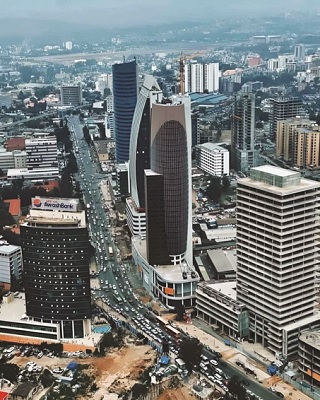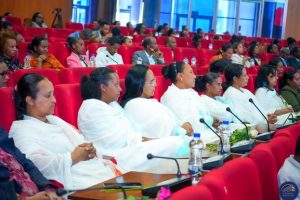
ADDIS ABABA – Addis Ababa, heart of Africa, is projected to be the key emerging urban hotspot in Africa by 2035, according to the Economist Intelligence Unit’s report.
While traditional African megacities such as Cairo, Lagos, and Johannesburg are expected to maintain their economic dominance, the center’s latest analysis report, titled: “African Cities 2035,” forecasts that Addis Ababa will be experiencing remarkably faster growth rates.
The center has also forecasted that Brazzaville, Dar es Salaam, and Luanda are among the joining predicted hotspots.
“This acceleration is mainly due to concrete infrastructure development, urbanization, and the emergence of neighboring megacities. Addis Ababa, which is already recognized as one of Africa’s most dynamic city economies, is anticipated to achieve approximately double-digit real GDP growth in the over stated period,” it remarked.
Compared to other cities, the report revealed that Nairobi and Abuja are anticipated to experience growth rates between 6% and 8% by 2035. It has also underscored that Africa is experiencing rapid population growth, notably in urban areas, driven by increased rural-to-urban migration.
It has further highlighted that “Africa’s urban population will rise from approximately 650 million in 2023 to nearly one billion in 2035, representing a compound annual growth rate of about 3.5%, with over 50% of Africans living in towns and cities by 2035.”
The authors warned that this rapid urbanization will cause possible setbacks such as overpopulation, the expansion of informal settlements, and high unemployment posing potential pressure on utility services across the continent.
Furthermore, various reports have also revealed that about 23% of Ethiopia’s population resides in urban areas.
Despite its substantial rural population, Ethiopia is undergoing a rapid process of urbanization, primarily fueled by an escalating rate of rural-to-urban migration.
It was stated that this report came after the conclusion of the inaugural African Urban Forum (AUF), which brought together officials, city planners, policymakers, academics, and community leaders from 47 African countries, took place here in Addis Ababa recently.
BY ASHENAFI ANIMUT
THE ETHIOPIAN HERALD TUESDAY 17 SEPTEMBER 2024





